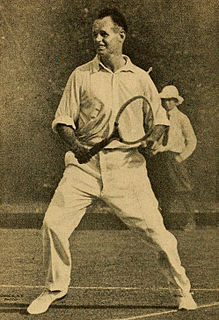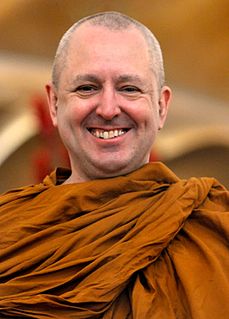A Quote by Dwight D. Eisenhower
Only our individual faith in freedom can keep us free.
Related Quotes
We forget that, although each of the liberties which have been won must be defended with utmost vigour, the problem of freedom is not only a quantitative one, but a qualitative one; that we not only have to preserve and increase the traditional freedom, but that we have to gain a new kind of freedom, one which enables us to realize our own individual self; to have faith in this self and in life.
Everyone talks about freedom. All around the world different people, different races, different countries are fighting for freedom. But what is freedom? In America we speak of living in a free country. But are we really free? Are we free to be who we really are? The answer is no, we are not free. True freedom has to do with the human spirit-it is freedom to be who we really are. Who stops us from being free? We blame the government, we blame the weather, we blame our parents, we blame religion, we blame God. Who really stops us from being free? We stop ourselves.
Faith is the framework for living. It gives us the spirit and heart that affects everything we do. If gives us hope each day. Faith gives us purpose to right wrongs, to preserve our families, and to teach our children values. Faith gives us conscience to keep us honest, even when nobody is looking. And, faith can change lives; I know first hand, because faith changed mine.
The most basic principle to being a free American is the notion that we as individuals are responsible for our own lives and decisions. We do not have the right to rob our neighbors to make up for our mistakes, neither does our neighbor have any right to tell us how to live, so long as we aren’t infringing on their rights. Freedom to make bad decisions is inherent in the freedom to make good ones. If we are only free to make good decisions, we are not really free.
The insistence on truthfulness does not disturb the freedom of the individual. The social obligation implied in Satyagraha turns the freedom of the individual into moral freedom. An atheist is free to say or to do what he likes, provided he does what he says and says what he does. So, in the context of social relations, the freedom of the individual is moral freedom.
The only way we can keep our freedom is to work at it. Not some of us. All of us. Not some of the time, but all of the time. So if you value your citizenship and you want to keep it for yourself and your children and their children, give it your faith, your belief, and give it your active support in civic affairs.
Grant us a common faith that we shall know bread and peace-that we shall know justice and righteousness, freedom and security, an equal opportunity and an equal chance to do our best not only in our own lands, but throughout the world. And in that faith let us march toward the clean world our hands can make.
Our modern Western culture only recognises the first of these, freedom of desires. It then worships such a freedom by enshrining it at the forefront of national constituitions and bills of human rights. One can say that the underlying creed of most Western democracies is to protect their people's freedom to realise their desires, as far as this is possible. It is remarkable that in such countries people do not feel very free. The second kind of freedom, freedom from desires, is celebrated only in some religious communities. It celebrates contentment, peace that is free from desires.
Education doesn’t make you happy. Nor does freedom. We don’t become happy just because we’re free – if we are. Or because we’ve been educated – if we have. But because education may be the means by which we realize we are happy. It opens our eyes, our ears, tells us where delights are lurking, convinces us that there is only one freedom of any importance whatsoever, that of the mind, and gives us the assurance – the confidence – to walk the path our mind, our educated mind, offers.































